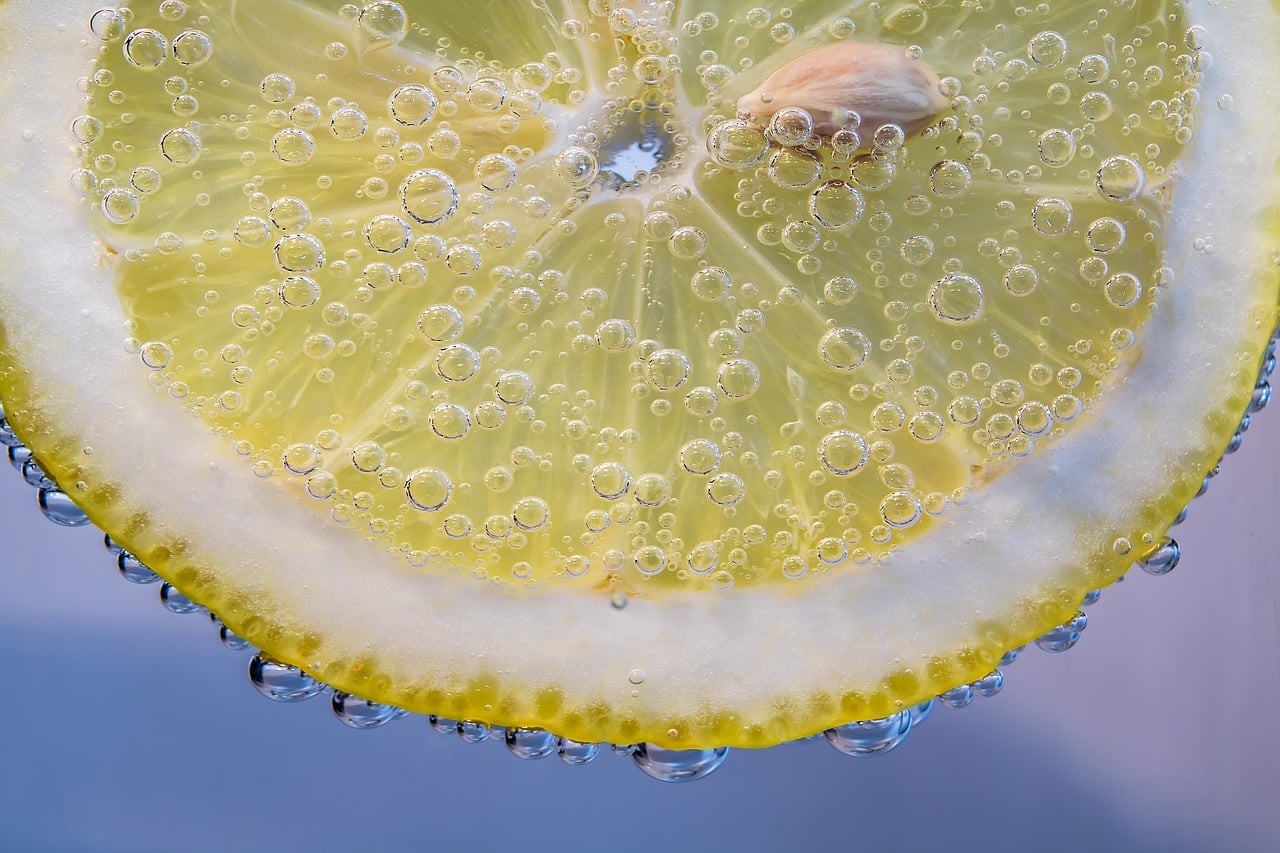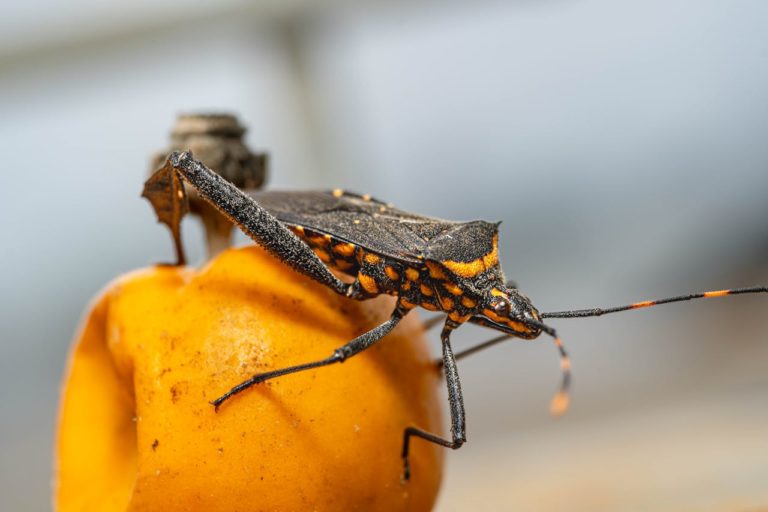Freezing lemons might seem like an unusual practice, but it turns out to be one of the best ways to maximize their health benefits. By simply freezing lemons, you can utilize the entire fruit—peel and all—without wasting a single bit. The process is straightforward: take an organic lemon, wash it thoroughly, and pop it into the freezer. Once frozen, the whole lemon can be grated or shredded without even peeling it first. This simple method allows you to sprinkle the zesty goodness of lemon over salads, soups, cereals, and even desserts, adding not only flavor but also a significant nutritional boost.
But why go through the trouble of freezing lemons? It’s because the lemon peel, which is often discarded, contains 5 to 10 times more vitamins than the juice itself. By freezing and grating the lemon peel, you can tap into a rich source of nutrients that are usually wasted. Moreover, recent studies have highlighted the potential health benefits of lemon extracts, particularly in relation to cancer prevention. These studies reveal that compounds found in lemons, known as limonoids, may play a role in inhibiting the growth of cancer cells, making this humble fruit an even more powerful addition to your diet.
Health Benefits of Lemons
Lemons are more than just a flavorful addition to your dishes—they are a powerhouse of health benefits. From boosting your immune system to supporting mental well-being, the health advantages of incorporating lemons into your daily routine are extensive. This section explores the diverse ways in which lemons contribute to overall health, beyond their potential cancer-fighting properties.
1. Antimicrobial and Antifungal Properties
Lemons have long been recognized for their antimicrobial and antifungal effects, which make them an effective natural remedy against various infections. The high acidity of lemon juice creates an environment that is hostile to many types of harmful bacteria and fungi. Studies have shown that lemon juice can inhibit the growth of certain bacterial strains, including Escherichia coli and Staphylococcus aureus, which are responsible for common foodborne illnesses. (5)
Additionally, the essential oils found in lemon peels, particularly limonene, have been demonstrated to possess antifungal properties. These oils can be effective against fungal infections such as Candida albicans, making lemon a valuable natural remedy for both internal and external infections. (6)
2. Regulating Blood Pressure
Lemons are also beneficial for cardiovascular health, particularly in regulating blood pressure. The high potassium content in lemons helps to balance sodium levels in the body, which is essential for maintaining healthy blood pressure. Potassium aids in relaxing the walls of blood vessels, thereby reducing blood pressure and lowering the risk of hypertension.
Furthermore, a study published in the Journal of Nutrition and Metabolism found that regular consumption of lemon juice, combined with daily walking, had a significant effect on lowering blood pressure. The study highlighted that the flavonoids and vitamin C in lemons contribute to improved vascular function and overall heart health. (7)
3. Enhancing Digestive Health
The dietary fiber in lemon peels, particularly pectin, plays a crucial role in promoting digestive health. Pectin acts as a prebiotic, feeding the beneficial bacteria in the gut and aiding in digestion. It also helps to regulate bowel movements, preventing constipation and promoting regularity.
Moreover, the acidity of lemon juice stimulates the production of bile in the liver, which is necessary for the digestion of fats. This makes lemons a great addition to meals, especially those high in fat, as they can help improve the efficiency of the digestive process.
4. Combating Stress and Enhancing Mood
Lemons are not only beneficial for physical health but also for mental well-being. The scent of lemon has been shown to have calming effects, reducing stress and anxiety levels. Lemon essential oil, in particular, is widely used in aromatherapy for its mood-enhancing properties. Studies have indicated that inhaling the scent of lemon can lead to a decrease in stress hormones, such as cortisol, which helps alleviate feelings of stress and anxiety. (8)
Furthermore, the vitamin C found in lemons plays a role in the production of neurotransmitters like serotonin, which is known as the “feel-good” hormone. Higher levels of serotonin are associated with improved mood and a reduction in symptoms of depression. By including more lemons in your diet, you may be able to naturally boost your mood and reduce stress.

5. Supporting Immune Function
One of the most well-known benefits of lemons is their ability to support the immune system. Lemons are rich in vitamin C, a powerful antioxidant that enhances the body’s defense mechanisms. Vitamin C stimulates the production of white blood cells, which are crucial for fighting off infections. Regular consumption of lemon juice can help reduce the severity and duration of colds, flu, and other viral infections.
Additionally, the antioxidant properties of vitamin C protect the body’s cells from damage caused by free radicals, which are unstable molecules that can weaken the immune system and contribute to chronic diseases. (9)
6. Detoxifying the Body
Lemons are often used in detox diets because of their ability to promote the elimination of toxins from the body. The citric acid in lemons helps to increase urine output, which aids in flushing out waste products and toxins from the kidneys and urinary tract. Moreover, the vitamin C and antioxidants in lemons support liver function by neutralizing harmful substances and enhancing the body’s natural detoxification processes.
Drinking warm lemon water in the morning is a popular detox practice that can help kickstart your metabolism and support digestive health. This simple habit can lead to improved energy levels, clearer skin, and better overall health. (9)
Lemon Extract and Cancer Prevention
Lemon extract, particularly from the peel, has garnered significant attention in recent years for its potential role in cancer prevention. The compounds found in lemons, especially limonoids and flavonoids, have been studied for their ability to inhibit the growth of cancer cells. While more research is needed to fully understand these effects in humans, the existing studies provide promising insights into how lemons might contribute to reducing cancer risk.
Limonoids: The Cancer-Fighting Compounds
Limonoids are a class of compounds found in citrus fruits, with lemons being particularly rich in these substances. Research has shown that limonoids can inhibit the growth of certain types of cancer cells, including breast, colon, and stomach cancers. A study conducted by Texas A&M University found that limonoids could significantly slow the growth of breast cancer cells. The study highlighted that limonoids are effective against both estrogen receptor-positive (ER+) and estrogen receptor-negative (ER-) breast cancer cells, making them a potentially valuable tool in cancer prevention.
These compounds work by inducing apoptosis, or programmed cell death, in cancer cells while leaving healthy cells unharmed. This selective action is what makes limonoids particularly interesting in the field of cancer research, as it suggests that lemon extract could be used as a complementary approach to traditional cancer treatments. (10)

Flavonoids and Their Role in Cancer Prevention
In addition to limonoids, lemon peels are rich in flavonoids, another group of compounds known for their antioxidant and anti-inflammatory properties. Flavonoids help to neutralize free radicals, which are unstable molecules that can damage cells and lead to cancer. By reducing oxidative stress, flavonoids in lemon peels may lower the risk of developing cancer and other chronic diseases.
A study demonstrated that flavonoids in lemon peels could inhibit the growth of cancer cells in various types of cancer, including skin, lung, and stomach cancers. The study found that these compounds can disrupt the cell cycle of cancer cells, preventing them from multiplying and spreading throughout the body. (11)
The Process of Freezing Lemons
Freezing lemons is a simple yet powerful method to make the most out of these citrus fruits. This process not only preserves the lemons but also enhances their versatility in the kitchen, allowing you to use the whole fruit, including the nutrient-rich peel.
Step 1: Selecting and Preparing the Lemons
Before you freeze your lemons, it’s essential to select ripe, organic lemons for the best results. Organic lemons are preferable because their peels are free from pesticides, making them safer to use. Start by thoroughly washing the lemons under cold water to remove any dirt or residues. Some people prefer to soak their lemons in a solution of water and vinegar or baking soda for a few minutes as an extra precaution.
Once cleaned, dry the lemons completely with a paper towel. Moisture left on the surface can lead to freezer burn, which might affect the texture and flavor of the lemons.
Step 2: Freezing Whole Lemons
Freezing whole lemons is the most straightforward method. Simply place the dried lemons into a freezer-safe, resealable plastic bag. Make sure to remove as much air as possible before sealing the bag, as this helps prevent freezer burn and preserves the quality of the lemons. Store the bag in the freezer, where the lemons will stay fresh for up to 12 months. When you need a lemon, you can grate it directly while frozen or defrost it in cold water for about 10-15 minutes if you need to juice it.
Step 3: Freezing Lemon Slices or Wedges
For those who prefer to use lemon slices or wedges, the process is just as easy. After washing and drying the lemons, cut them into slices or wedges, depending on your preference. Arrange the slices in a single layer on a baking sheet lined with parchment paper to prevent them from sticking together. Place the baking sheet in the freezer and allow the lemons to flash freeze for about 2-3 hours. Once the slices are fully frozen, transfer them to a resealable plastic bag, again removing as much air as possible before sealing. These slices can be used directly from the freezer as a garnish or in recipes.
Step 4: Freezing Lemon Zest
The zest of a lemon is packed with flavor and nutrients. To freeze lemon zest, first, grate the zest from the lemons using a fine grater or zester. The zest can then be stored in a small freezer bag or container and placed in the freezer. Like whole lemons and slices, frozen zest can be used directly from the freezer to add a burst of citrus flavor to dishes.
Step 5: Freezing Lemon Juice
Freezing lemon juice is incredibly convenient for cooking and baking. After juicing the lemons, pour the juice into ice cube trays, which allows you to freeze the juice in small, manageable portions. Once frozen, the lemon juice cubes can be transferred to a freezer bag and stored for up to several months. These cubes are perfect for adding to drinks, recipes, or even for making lemonade on a hot day.
My Personal RX on Incorporating Lemons Into Your Diet
As a doctor, I always recommend incorporating whole, natural foods into your diet, and lemons are no exception. Here are my top tips for making the most of this powerful fruit:
- Start Your Day with Lemon Water: A warm glass of lemon water each morning can kickstart your metabolism and support digestive health. The vitamin C in lemons also helps to boost your immune system right from the start of your day.
- Add Lemon Zest to Your Meals: Grated lemon peel is a versatile addition to many dishes. It’s rich in nutrients that you’d otherwise miss if you only used lemon juice. Try adding zest to salads, soups, or even baked goods for an extra burst of flavor and health benefits.
- Super Greens Boost: If you’re looking to amplify your nutrient intake, consider adding my Super Greens powdered supplement to your routine. It pairs excellently with a squeeze of lemon juice for a refreshing and health-boosting drink.
- Incorporate Lemons into Your Cooking: Use lemons in cooking beyond just a garnish. Their acidity can enhance the flavor of marinades, sauces, and even roasted vegetables. Plus, the health benefits of lemon juice make it a smart choice for any recipe.
- Freeze for Convenience: Keep a supply of frozen lemon slices or zest ready in your freezer. It makes it easy to add a burst of citrus to your meals without any hassle.
- Lemon and Superfoods: Explore new and fun ways to integrate lemons with other superfoods by using my Superfoods Cookbook. It’s a great way to discover wholesome recipes that combine the power of lemons with other nutrient-dense ingredients.
- Detox with Lemon: If you’re looking to detoxify, lemon can be your ally. Incorporate it into your diet through lemon water, dressings, or simply as a topping for various dishes to help support your body’s natural detox processes.
- Snack Smart with Lemon: For a healthy snack, try lemon slices with a sprinkle of chili powder and salt. It’s a simple way to enjoy the benefits of lemon while satisfying your taste buds.
- Lemon in Smoothies: Add a squeeze of lemon juice to your morning smoothie to enhance its flavor and boost your vitamin C intake. It pairs particularly well with greens and berries.
- Create a Homemade Lemon Dressing: Whisk together lemon juice, olive oil, and herbs for a fresh and tangy salad dressing. This easy addition to your salads not only enhances the taste but also provides additional health benefits from the lemon.

Sources:
- FoodData Central. (n.d.). https://fdc.nal.usda.gov/fdc-app.html#/food-details/167749/nutrients
- Jiang, H., Zhang, W., Xu, Y., Chen, L., Cao, J., & Jiang, W. (2022). An advance on nutritional profile, phytochemical profile, nutraceutical properties, and potential industrial applications of lemon peels: A comprehensive review. Trends in Food Science & Technology, 124, 219–236. https://doi.org/10.1016/j.tifs.2022.04.019
- Rafiq, S., Kaul, R., Sofi, S., Bashir, N., Nazir, F., & Nayik, G. A. (2018). Citrus peel as a source of functional ingredient: A review. Journal of the Saudi Society of Agricultural Sciences, 17(4), 351–358. https://doi.org/10.1016/j.jssas.2016.07.006
- Kim, J., Jayaprakasha, G. K., & Patil, B. S. (2013). Limonoids and their anti-proliferative and anti-aromatase properties in human breast cancer cells. Food & Function, 4(2), 258–265. https://doi.org/10.1039/c2fo30209h
- Suriyaprom, S., Mosoni, P., Leroy, S., Kaewkod, T., Desvaux, M., & Tragoolpua, Y. (2022). Antioxidants of Fruit Extracts as Antimicrobial Agents against Pathogenic Bacteria. Antioxidants, 11(3), 602. https://doi.org/10.3390/antiox11030602
- Viuda-Martos, M., Ruiz-Navajas, Y., Fernández-López, J., & Pérez-Álvarez, J. (2008). Antifungal activity of lemon (Citrus lemon L.), mandarin (Citrus reticulata L.), grapefruit (Citrus paradisi L.) and orange (Citrus sinensis L.) essential oils. Food Control, 19(12), 1130–1138. https://doi.org/10.1016/j.foodcont.2007.12.003
- Kato, Y., Domoto, T., Hiramitsu, M., Katagiri, T., Sato, K., Miyake, Y., Aoi, S., Ishihara, K., Ikeda, H., Umei, N., Takigawa, A., & Harada, T. (2014). Effect on blood pressure of daily lemon ingestion and walking. Journal of Nutrition and Metabolism, 2014, 1–6. https://doi.org/10.1155/2014/912684
- Agarwal, P., Sebghatollahi, Z., Kamal, M., Dhyani, A., Shrivastava, A., Singh, K. K., Sinha, M., Mahato, N., Mishra, A. K., & Baek, K. (2022). Citrus essential oils in aromatherapy: therapeutic effects and mechanisms. Antioxidants, 11(12), 2374. https://doi.org/10.3390/antiox11122374
- Lv, X., Zhao, S., Ning, Z., Zeng, H., Shu, Y., Tao, O., Xiao, C., Lu, C., & Liu, Y. (2015). Citrus fruits as a treasure trove of active natural metabolites that potentially provide benefits for human health. Chemistry Central Journal, 9(1). https://doi.org/10.1186/s13065-015-0145-9
- Kim, E. H., Hankinson, S. E., Eliassen, A. H., & Willett, W. C. (2007). A prospective study of grapefruit and grapefruit juice intake and breast cancer risk. British Journal of Cancer, 98(1), 240–241. https://doi.org/10.1038/sj.bjc.6604105
- Koolaji, N., Shammugasamy, B., Schindeler, A., Dong, Q., Dehghani, F., & Valtchev, P. (2020). Citrus peel flavonoids as potential cancer prevention agents. Current Developments in Nutrition, 4(5), nzaa025. https://doi.org/10.1093/cdn/nzaa025











 Subscribe to Ask Dr. Nandi YouTube Channel
Subscribe to Ask Dr. Nandi YouTube Channel









